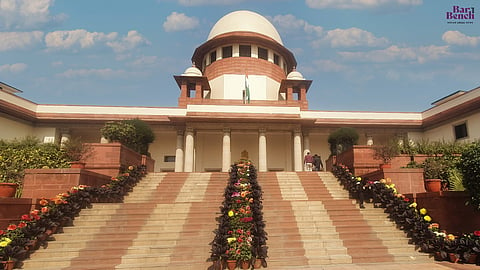The Supreme Court on Tuesday dismissed a petition challenging two government notifications declaring ISIS and associated ideological expressions as terrorist organisations under the Unlawful Activities (Prevention) Act (UAPA), 1967 [Saquib Abdul Hamid Nachan vs. Union of India].

